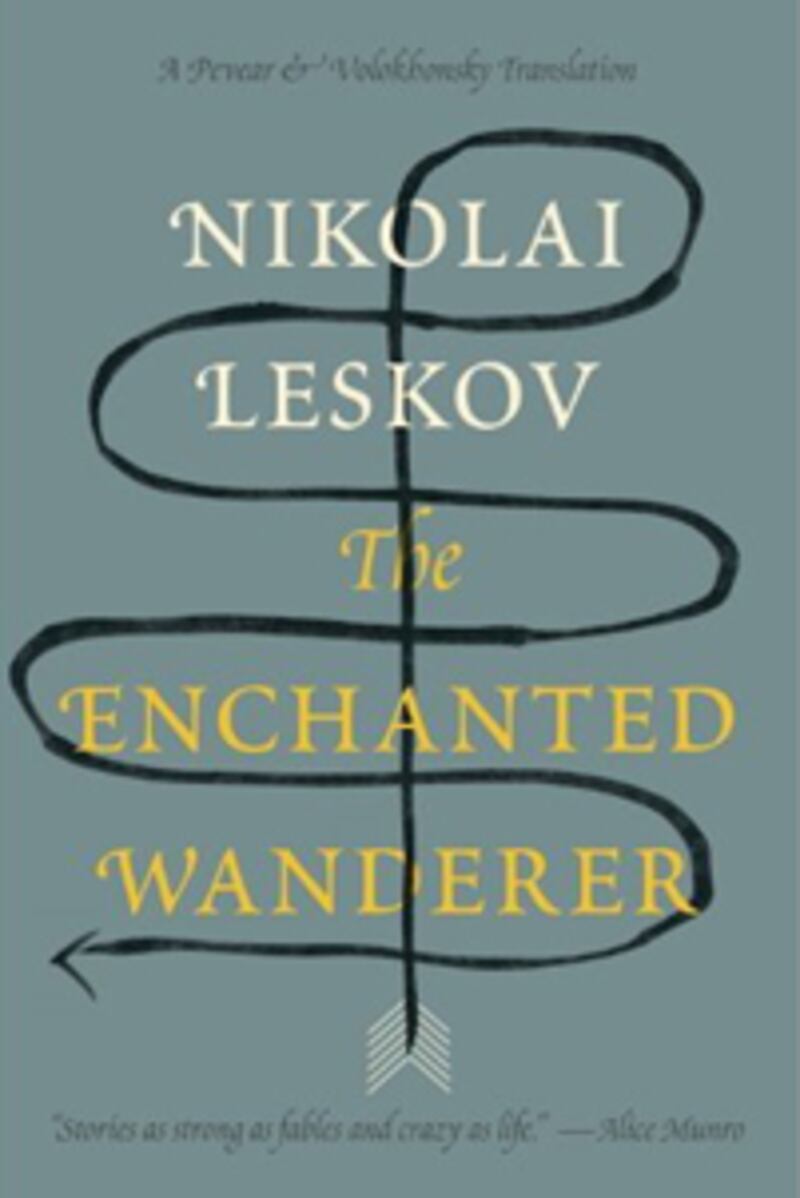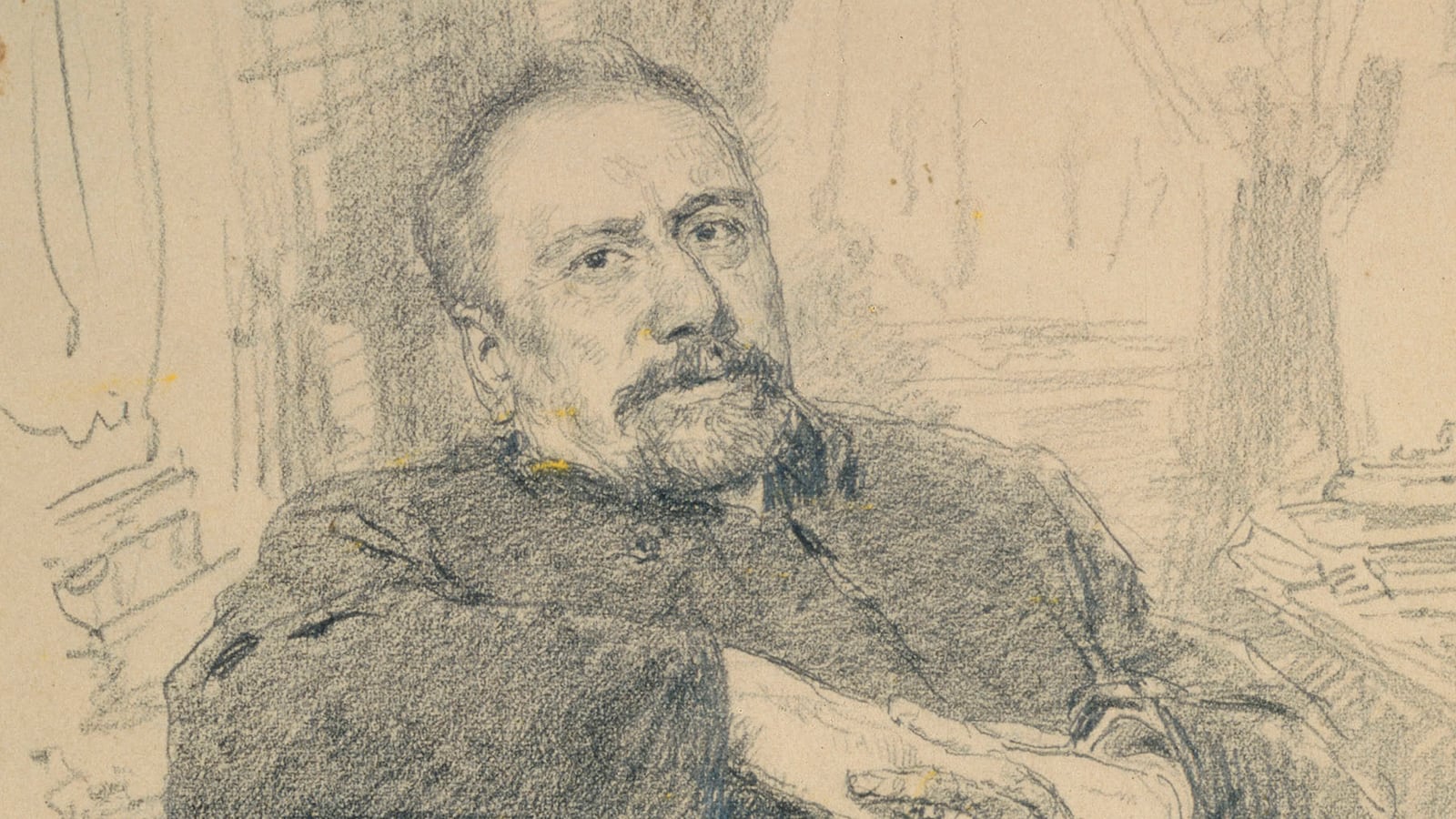Like fossil fuel, the amount of great Russian literature still underground has to be limited. So here is Nikolai Leskov (1831-1895). Not an unknown writer, but an ignored one. His crude waits in underground caves, reeking of profit. We don't read him because he's the opposite of what we're taught to like. He's a longwinded miniaturist, a man of vague loyalties. He's vague about where he's going. He regales us. His stories pound Chekhovian humanity into a quixotic pulp. He's boring where any competent MFA grad would be interesting. And interesting precisely where all of us are boring.

Leskov was a wounded moderate. Incurring the wrath of the nihilists early, he feinted right. He limped behind Tolstoy and Dostoevsky; he was not a man to keep up a totalizing vision; nor could he, after he reached artistic maturity, put forward a novel of any length. He did everything wrong. He wrote countrified yarns of yawning length. He composed in a style called skaz, which apparently was Russian for narratological lumpiness. To make matters worse, his heroes were square. Think Gogol's "Ukrainian Tales" redone by a Boy Scout who doesn't believe in magic.
Leskov's genius lies in the modesty of his narrators, their helplessness before the art of narrative. One character speaks of a storyteller's "complete frankness, which he was obviously quite unable to abandon." "There was no special story," a narrator will say, before falling into a lengthy narrative. One character complains that another "started telling me an enormous story"—as if the size of the story was not a choice of the storyteller.
Subjects that even a kindred 19th-century storyteller like Heinrich von Kleist or Giovanni Verga would burnish for human interest and high moral passion get wonderfully clouded in Leskov's telling. Consider "Singlemind," the story of a cross-country courier who, reading the Bible between towns, becomes a kind of self-taught saint, a stubbornly honest man who improbably rises, becoming a sheriff and finally a decorated nobleman. The whole thing seems like a joke. But not a joke with a point.
Leskov's greatest ambition was to write "stories of righteous men"—not because he was Pollyanna-ish, but because he resisted (and resented) the closure of satire. Insofar as he refused to clarify his politics, or at least was wounded by being labeled (as right-wing), he stood up for the jolliness of muddledom, and equated confusion with innocence.

Thus his love of escapist, desperately lighthearted writers like Laurence Sterne and Miguel de Cervantes. Leskov would be digressive, critics be damned. He tried to brand what he was doing—calling it a "novelistic chronicle," or an "expanded view of the memoir form." As early as 1877 he was defending his style, whatever it might be called, as being "more alive, or, better, more earnest than depicting scenes, in the grouping of which, even in such masters as Walter Scott, the forcing is obvious—which is what simple people mean when they say, 'It happened just like in a novel.'"
One review of Pevear and Volokhonsky's fresh translation of Leskov, The Enchanted Wanderer, declared that "There is no point in summarizing the plots of these stories." But I want to try to provide a sample.
The story "Deathless Golovan" begins with a meditation on the eponymous Golovan's epithet, which the narrator admits not really understanding—"because in my childhood I didn't think about it." The narrator then relates a vivid childhood memory, when Golovan, a neighbor, saved him from a rabid dog. This will be the narrator's last first-person account of Golovan. Persevering on hearsay, spun and shifted from every possible angle, the narrator next describes Golovan—a brawny man, with a limp. His house and family are described in detail, with special emphasis on Pavla, a woman known as "Golovan's sin." Then Golovan's dairy business is detailed, as are the "spitting blankets" woven by his female relatives. The narrator wonders where Golovan got his yarn. Next we learn of Golovan's career as a giver of advice. Finally the epithet of "deathless" gets some explanation, stemming from Golovan's fearless ministrations during a plague. Then a herdsman's assistant named Panka is introduced. Panka, we learn, doesn't have very warm clothes, and we spend a chilly night with him as he tries to sleep by a riverbank. He's awakened by a man walking on the water. To explain this ghostly occurrence, we get a dollop of gossip concerning the recent death of a hated bishop. But then Panka realizes it is merely Golovan, crossing the water on a flimsy raft. Note that we have not yet been introduced to any unifying plot conflict. This is a Leskov story, a monument to its own misshapen massiveness.
Leskov succeeds or fails on terms alien to my own critical conversation. As a teacher of fiction writing, I have again and again emphasized scenes and scenic conflict, but have been at a loss to explain something harder: a talent for the tissue of narration, the scarf of story. I think I am not alone in being constantly reawakened by mavericks like Leskov—Thomas Bernhard, W. G. Sebald, and Javier Marías have commanded so much attention precisely because they flow so widely outside the ditch of conventional scenic structure. Maybe that kind of writing is inimitable, unteachable. But I am going to try teaching Leskov in my next workshop. I hope others do too.





